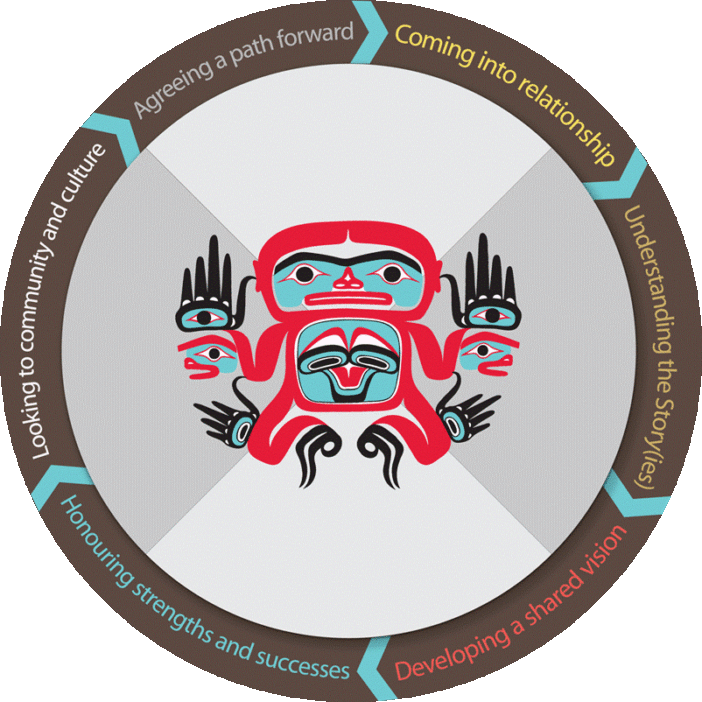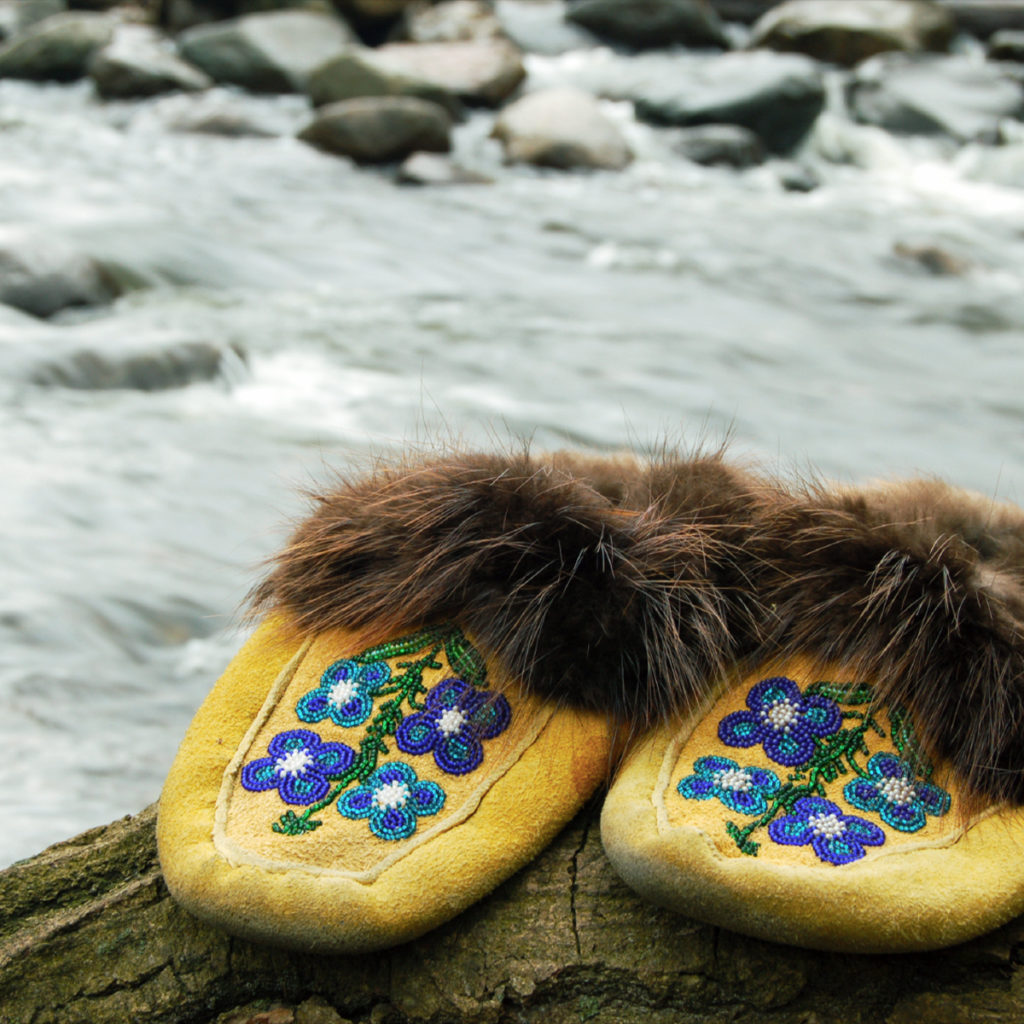Indigenous children must be raised in relationship with family, community and culture.
The nurturing of kinship ties and cultural identity is essential to their well-being. Inclusive Foster Care is a crucial practice that strengthens this vital connection to identity for children in care.
In the early 2000’s, VACFSS convened a committee of parents, youth, foster caregivers, staff, Elders, and community professionals to develop a comprehensive Inclusive Foster Care policy. They worked together to share stories and best practice on how to include parents and kin meaningfully in a child’s care, and how to strengthen the connections to a child’s culture(s). VACFSS continues to develop Inclusive Foster Care today, seeing it as a partnership to which the child’s family and the foster caregivers share responsibility for the care of children. It emphasizes the strengthening of kinship and culture within a framework of shared care in which parents and foster caregivers teach and support each other to care for the child.
“Culture is a way of life, everything you do, who you are.”
Inclusive Foster Care is grounded in the belief that, as a 1992 review of 42 submissions from Indigenous communities on Indigenous Child Welfare asserts, “culture is a way of life, everything you do, who you are.” The children served come from many Nations; Inclusive Foster Care requires the clarity about the child’s unique cultural identity that comes through working with the child’s family and Indigenous community, and creating room for the child’s cultural practices in day-to-day caregiving.


One VACFSS foster caregiver explains “the children have grown up to have a strong affiliation to their Nation. We took them to their community for powwows. We know that it’s absolutely critical for them to be around their family, to know their family, not just as a name at the end of a telephone line but to know where they live. To see them, hear them, and play with them is so important.”
Inclusive caregivers understand how cultural programming creates healing, and connect children and youth in their care to opportunities, like those offered by VACFSS’s youth engagement programmes, to experience leadership, success, teamwork, and a strong sense of their own identity.
This year, VACFSS’ Resources Program and Policy, Research, and Development Unit had the opportunity to engage deeply in the translation of research to practice as our Inclusive Foster Care study moved to the stage of implementing findings. With valued partners like Hollyburn Family Services we are developing tools, processes, policy and experiential training to support relationships between foster families and the family and Nation(s) of the children in care.
Caregivers are needed and provided with training, support and the tools for success in joining our “Circle of Caring.”
One exciting outcome of the work has been to initiate the development of a VACFSS website for caregivers that aims to provide much-needed information about how to support the child’s connections to their Indigenous culture(s) and community(ies). VACFSS collaborated with foster caregivers, youth from care, managers, frontline staff, and Elders to share learning. VACFSS also worked in partnership with a number of Indigenous communities to learn more about the child-rearing practices from their Nations. This new resource is expected to be launches as part of the new VACFSS website in early 2020.
Learn more about foster caregiving at Vancouver Aboriginal Child and Family Services Society by visiting our foster caregiving page. Caregivers are needed and provided with training, support and the tools for success in joining our Circle of Caring, email: foster@vacfss.com or call 604-216-7447 for enquiries.











